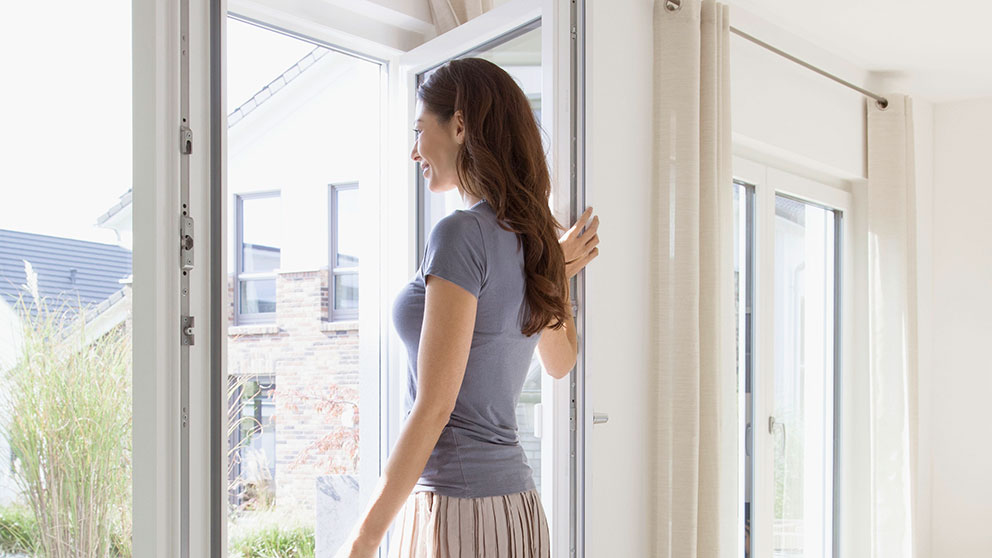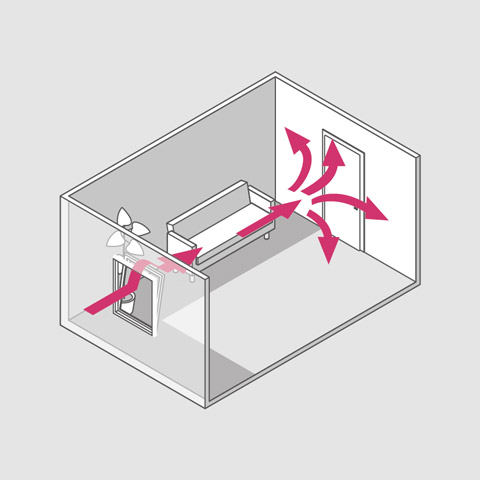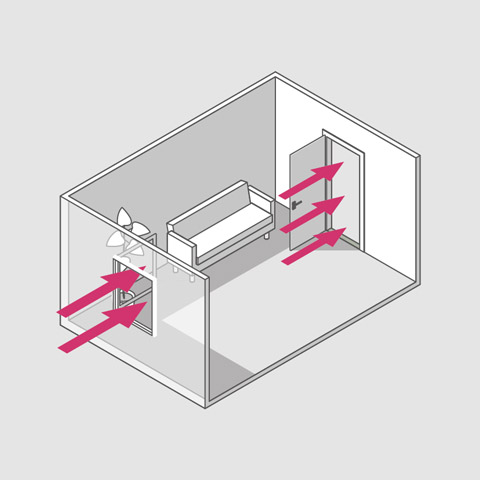Effective ventilation
For a pleasant living environment

Modern windows and doors close very tightly and thus save a lot of heating energy. Thanks to modern building materials and technologies, the rest of the building shell also allows significantly less air exchange than before. Because of this tightness, regular ventilation of the windows is important. The indoor humidity is regulated through continuous air exchange and thus prevents the formation of mold, structural damage and deterioration of the living environment.

Source: Federal Environment Ministry campaign “Climate seeks protection”
What can happen if there is too little ventilation?
- Increase in humidity in the rooms
- Moisture penetration of the masonry
- Damage to the building structure
- Mold formation
Why is regular ventilation so important?
- Regulation of room humidity and temperature
- Replacing used breathing air with unused fresh air
- Avoidance of condensation and mold formation
- Prerequisite for a healthy climate and pleasant living conditions

Not very effective: continuous ventilation
With this type of ventilation, the window is tilted, which only results in a small amount of air exchange and therefore usually leads to a longer opening period. Tilting the windows for a longer period of time causes walls, etc. to cool down. A lot of energy then has to be used when heating.

Effective: shock ventilation
By opening all windows and doors at the same time, a draft is created that completely refreshes the air in your living space in just two to four minutes. The components do not cool down during this time. An effective type of ventilation that flattens energy losses and saves on heating costs.
If you cannot ventilate regularly, or do not want to waste heating energy when ventilating and leave dust, pollen and noise outside, we recommend using the innovative window system “GENEO INOVENT: The window that ventilates when closed!” .

